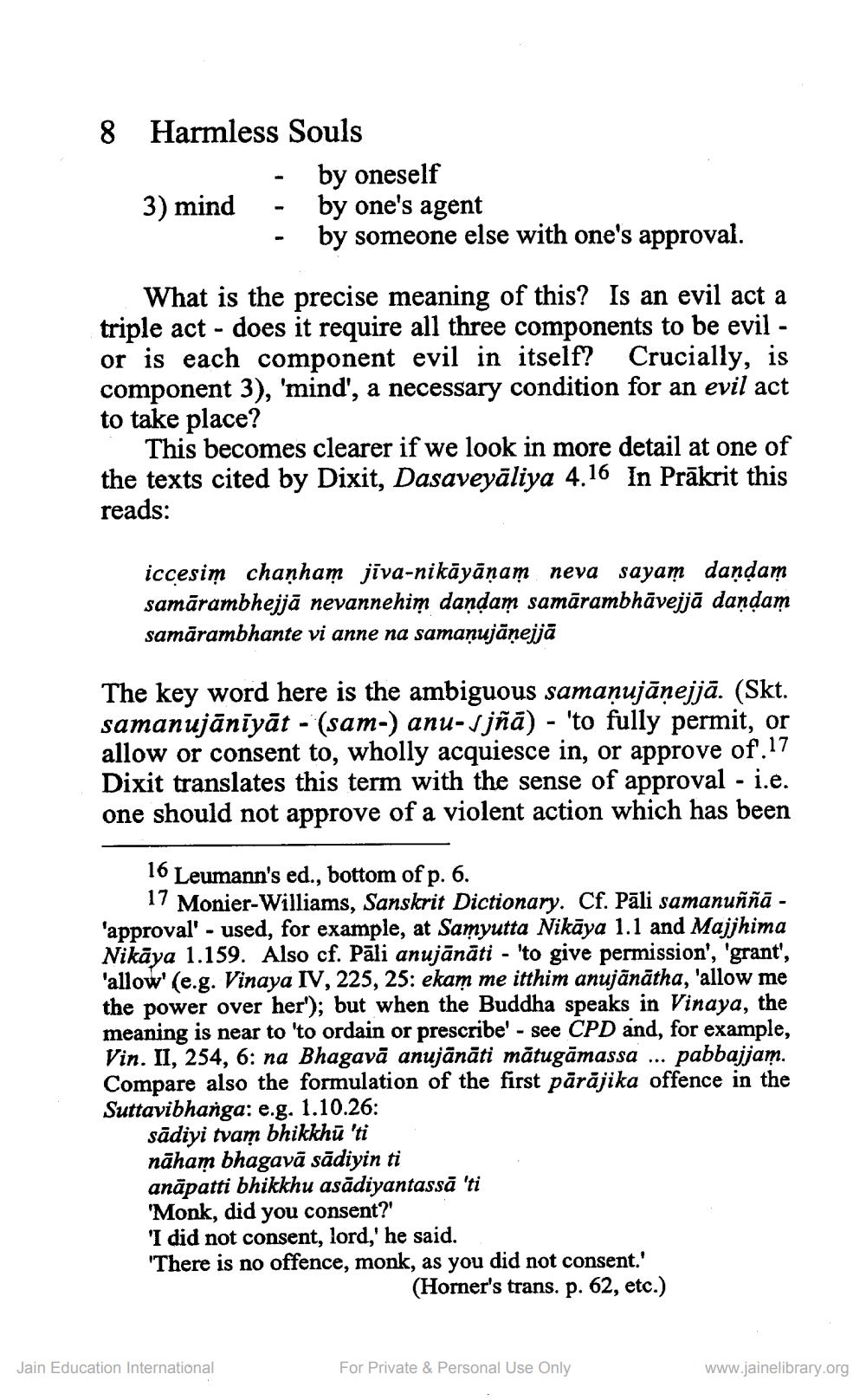________________
8 Harmless Souls
- by oneself 3) mind - by one's agent
- by someone else with one's approval.
What is the precise meaning of this? Is an evil act a triple act - does it require all three components to be evil - or is each component evil in itself? Crucially, is component 3), 'mind', a necessary condition for an evil act to take place?
This becomes clearer if we look in more detail at one of the texts cited by Dixit, Dasaveyāliya 4.16 In Prākrit this reads:
iccesim chamham jiva-nikāyāņam neva sayam daņdam samārambhejjā nevannehim daņdam samārambhāvejjā dandam samārambhante vi anne na samaņujāņejjā
The key word here is the ambiguous samaņujānejjā. (Skt. samanujānīyāt - (sam-) anu-vjñā) - 'to fully permit, or allow or consent to, wholly acquiesce in, or approve of. 17 Dixit translates this term with the sense of approval - i.e. one should not approve of a violent action which has been
16 Leumann's ed., bottom of p. 6.
17 Monier-Williams, Sanskrit Dictionary. Cf. Pāli samanuññā - 'approval' - used, for example, at Samyutta Nikāya 1.1 and Majjhima Nikāya 1.159. Also cf. Pāli anujānāti - 'to give permission', 'grant', 'allow' (e.g. Vinaya IV, 225, 25: ekam me itthim anujānātha, 'allow me the power over her'); but when the Buddha speaks in Vinaya, the meaning is near to 'to ordain or prescribe' - see CPD and, for example, Vin. II, 254, 6: na Bhagavā anujānāti mātugāmassa ... pabbajjam. Compare also the formulation of the first pārājika offence in the Suttavibhanga: e.g. 1.10.26:
sādiyi tvam bhikkhū 'ti nāham bhagavā sādiyin ti anāpatti bhikkhu asādiyantassā 'ti 'Monk, did you consent?' 'I did not consent, lord,' he said. 'There is no offence, monk, as you did not consent.'
(Horner's trans. p. 62, etc.)
Jain Education International
For Private & Personal Use Only
www.jainelibrary.org




